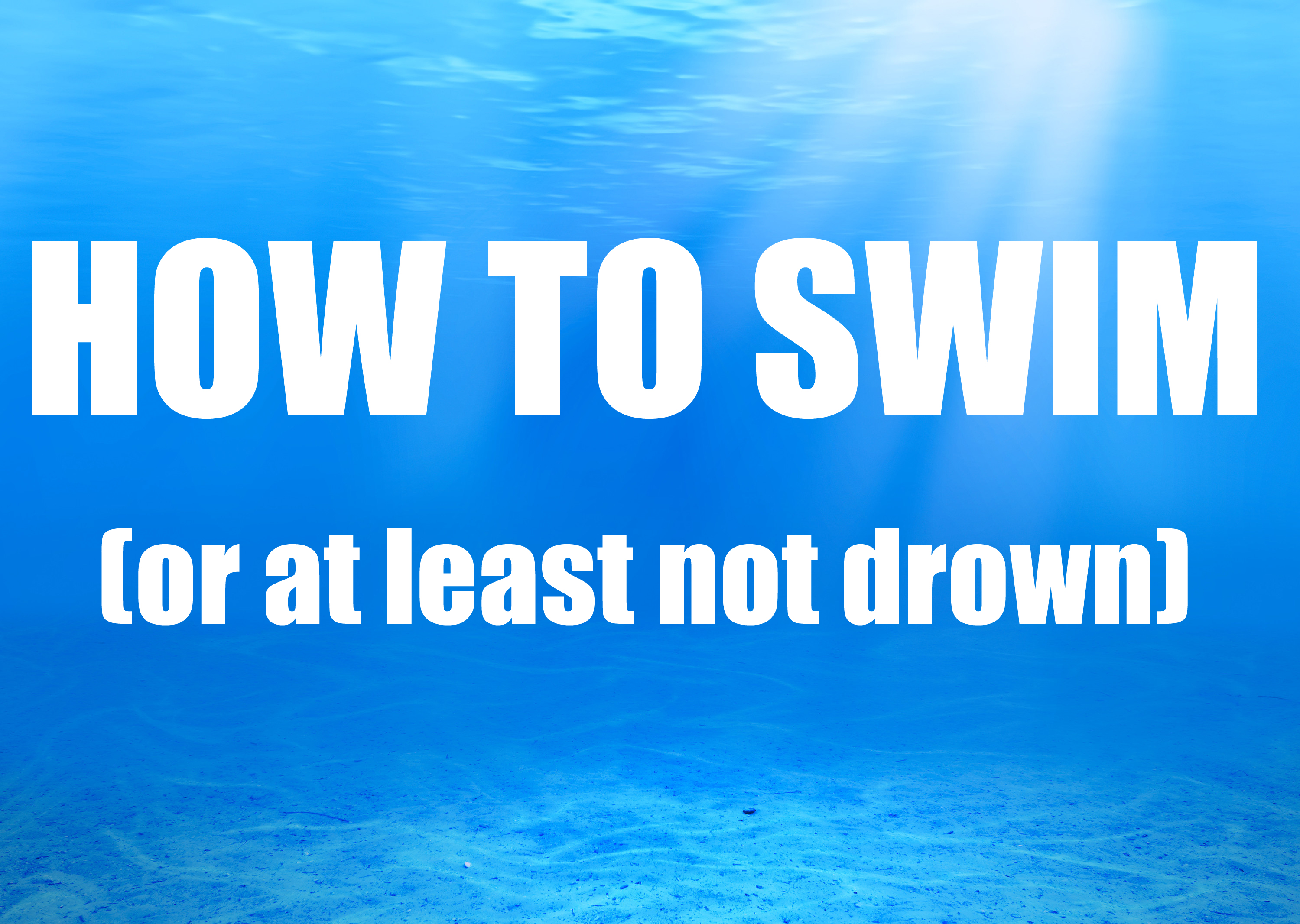By Darren Johnson
Campus News
When I mention these column ideas to the staff, they sigh, thinking I’m either being sarcastic or patronizing, but, really, I don’t possess such modern sensibilities.
I mean, OK, maybe my pieces on “How to Use an Elevator” or “How to Drink Coffee” could be deemed insulting to people who are hardened veterans of high-rises and French presses, but – in my real life – I encounter new adults trying to figure out these staples of older people’s existences. These experiences are “new” to many people, and, as someone who is naturally conscientious, I want to be helpful. Though sometimes I get comments like “duh,” as if I am stating the obvious.
Yet, I will continue this series with a big cannonball in the deep end of the pool. I’m talking about swimming, and how to do it.
Yeah, eye rolls from disaffected Gen Zers whose parents took them to the Y as kids, but studies say 54% of Americans don’t know how to swim, or don’t know how to swim decently enough to manage a bad situation, and the problem is worse in big cities like New York.

In America, people feel others shouldn’t speak out of their specialty. For example, I’m a newspaper owner. I should only talk about journalism issues, right? I say wrong.
Because I’ve had a life. And I was an expert at a lot of things up until this point in time.
In my disaffected youth, I lifeguarded at hotel pools. One hotel out in Montauk found a loophole in the law and sent me out to be a beach lifeguard, even though I wasn’t ocean certified. In any case, just because I haven’t lifeguarded in decades doesn’t mean I have forgotten what I’d learned.
I encourage you to learn whatever you can at whatever job you have. Heck, I even worked at a restaurant as an all-purpose person and can still make 20 of their dishes because of that yearlong stint.
Now I see viral videos of people crazily jumping into pools to save struggling little kids. They even play these clips on the TV news, making the people out to be heroes.
But, really, the panicky adults could be making matters worse. I regularly grabbed struggling kids who would wander into the deep end. It was tremendously easy, really. But jumping in wildly at the very least will ruin your clothes and your iPhone. You may even hit your head, become unconscious and drown, too. Here is the reality of the situation:
You Probably Float
When I first started lifeguarding, I was about 170 pounds. A huge, round man, maybe 375 pounds, walked by my chair and must have seen my eyes open like saucers. He looked at me wryly and said, “Don’t worry. I float.” And, indeed, he did. He’d just lie back, as if on a floating mattress, drinking his drink, in sunglasses, an island unto himself.
Soon, I realized most people float. Just relax and visualize floating. The people who don’t float have very dense muscles. However, if you are that muscular, you should have the strength to move your feet enough to stay above water.
Assess the Situation
If you see someone struggling, unless you know you are a very strong swimmer, look for obvious solutions before you jump in. Often, a bad swimmer will jump in, trying to save someone, and the hero drowns while the other person manages to get to shore. Most kids panicking in the deep end can be saved by firm, reassuring instructions. Encourage the kid to calm down and to reach for the edge of the pool. If the kid is too far from the edge, there may be a pole with a hook nearby, or another flotation device you can toss in.
Never Panic
It’s when people panic they start to go under. It might be their body tightening and exhaling air with their yells. Try to recenter your thoughts. Ease up. Be loose. You got this.
Practice
Practice staying afloat with just your arms, and then just your legs. That way, if you get a cramp in one half of your body, the other half can compensate.
Your Lungs Are a Flotation Device
Breathe in deeply and keep your lungs full. Learn how to exhale air strategically.
Unlearn Bad Advice
Don’t hold your nose or close your eyes. Don’t just flail around crazily. If you’re splashing a lot, you are probably doing it wrong. Be mentally present and disciplined in the pool.
Actually Learn How to Swim
Most people kind of know a doggy paddle. They are freelancing out in the pool, not really sure what they are doing. Find someone who swam competitively before – maybe on their high school swim team – and have that person show you some freestyle techniques. Maybe race your friends from one end of the pool to the other. Being able to really swim can help you save yourself, or someone else.
Touch the Bottom
Learn how to touch the bottom of the deep end of the pool with your hands. Stay under as long as possible. When I lifeguarded, I knew I’d never have to worry about swimmers who could touch the bottom and manage their oxygen. They were the complete package.
Yeah, you may already know all of the above. Roll your eyes. But stats say 54% of you don’t know enough – so this column could save a life someday. While it’s true I haven’t lifeguarded in a long time, maybe by writing this I’m nonetheless making a save.





Facebook Comments